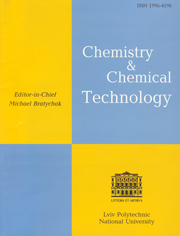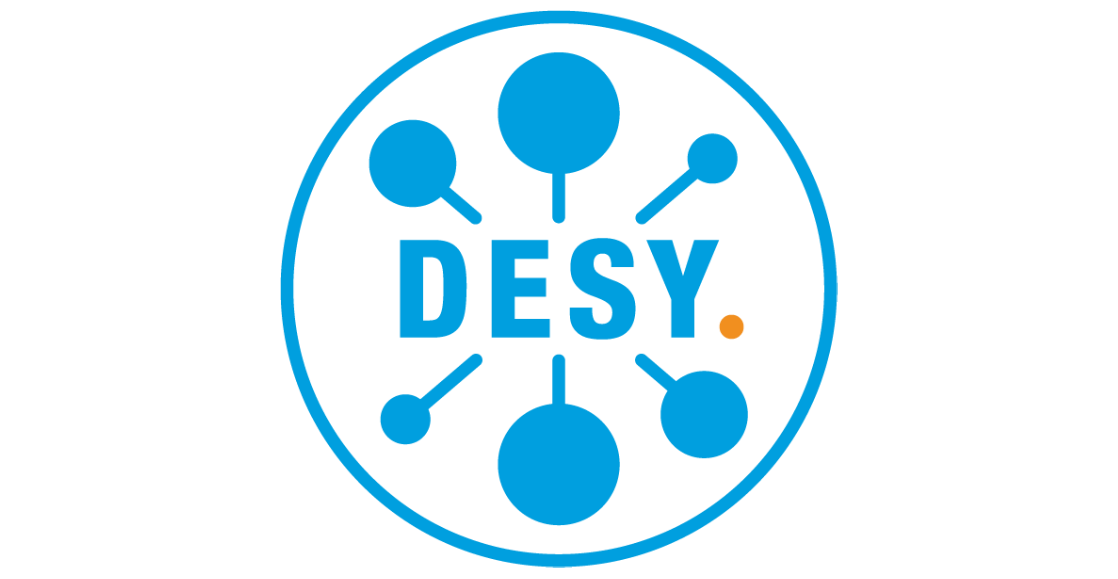Publication Ethics
Ethical Guidelines are provided for authors, editors, and reviewers.
The Chemistry & Chemical Technology journal strives for an objective and fair evaluation of the submitted manuscripts. It prevents any actual or potential conflicts of interest between editors, reviewers, and authors. Тhe editorial board meets well-known international principles of publishing ethics, reflection, attention to the recommendations of the Committee on Ethics of Scientific Publications (COPE), Handbook on Ethics of Scientific Publications (Publishing Ethics Resource Kit) by Elsevier, and Code of Ethics for Scientific Publications.
DORA Principles Compliance Policy
In its activities, the Editorial Board of the scientific journal Chemistry & Chemical Technology is guided by the principles of the San Francisco Declaration on Research Assessment (DORA). It adheres to international standards of academic integrity, transparency, and the responsible evaluation of research outcomes. Accordingly, the journal:
does not use the h-index or other journal- or author-level metrics as indicators of the quality of individual articles; decisions on manuscript acceptance are based solely on scientific merit, originality, methodological transparency, and the quality of argumentation;
evaluates manuscripts exclusively based on their content, regardless of the authors’ institutional affiliations, institutional prestige, or level of research funding;
encourages detailed and transparent descriptions of methods, data, and analytical procedures to enable objective assessment of research results;
recognizes the value of diverse research outputs, including original research articles, review papers, methodological studies, and reports of negative or null results; all such submissions are considered on an equal basis, provided they meet the journal’s editorial requirements;
conducts single-masked peer review in accordance with the journal’s policies and international COPE standards;
ensures that all editorial decisions are based on independent expert evaluation;
requires that members of the Editorial Board abstain from participating in decisions concerning their own manuscripts or those submitted by individuals with whom they have financial, familial, or professional relationships.
FAIR Principles Compliance Policy
In its activities, the Editorial Board of the scientific journal Chemistry & Chemical Technology adheres to the FAIR principles (Findable, Accessible, Interoperable, Reusable), which aim to ensure the accessibility, interoperability, and reusability of scientific data and related materials. In particular:
authors must provide complete and accurate metadata describing the study; research data should be made available in open formats or through clearly defined access procedures, without artificial barriers; where full data disclosure is not possible (e.g., due to ethical, legal, or confidentiality constraints), a justified explanation must be provided;
authors must ensure the use of internationally recognized and commonly accepted metadata standards;
data and related materials must be accompanied by a clear and appropriate usage license, where applicable;
authors are required to provide sufficient information on the research context, methods, and tools to enable data verification, reproduction, or reuse by third-party researchers.
Authors’ Obligations Regarding the DORA and FAIR Principles
all authors submitting manuscripts to Chemistry & Chemical Technology must comply with the DORA and FAIR principles;
authors bear full responsibility for the accuracy of the submitted data and for compliance with applicable ethical and legal requirements.
Editorial Board's Obligations Regarding the DORA and FAIR Principles
The journal Chemistry & Chemical Technology:
ensures responsible, objective, and non-discriminatory evaluation of submitted manuscripts;
guarantees that peer review, editorial decision-making, and publication processes are independent of commercial, institutional, or other undue influences;
provides appropriate technical infrastructure for hosting, validating, and disseminating metadata, and actively promotes the correct implementation of the DORA and FAIR principles.
Policy Violations
In cases of non-compliance with the DORA and FAIR principles, the Editorial Board of Chemistry & Chemical Technology reserves the right to request revisions, reject the manuscript, or publish corrections or notices, in accordance with international COPE recommendations.
• Safety
Authors must emphasize any unexpected, new, and/or significant hazards or risks associated with the reported work. This information should be in the Experimental Section of a full article or included in the cover letter.
• Conflict of interests
The authors declare that they have disclosed any actual or potential conflicts of interest related to their work. Any facts that might be perceived as a possible conflict of interest of the author(s) must be disclosed in the paper before submission. Any financial conflicts of interest should also be disclosed.
• Plagiarism
Plagiarism, data fabrication, and image manipulation are not tolerated. Plagiarism includes copying text, ideas, images, or data from another source, even from your own publications, without giving any credit to the source. Reuse of text that is copied from another source must be between quotes, and the original source must be cited. If plagiarism is detected during the peer review process, the manuscript may be rejected. If plagiarism is detected after publication, the journal may publish a correction or retract the paper.
• Author list
During the submission process, authors are required to obtain the consent of all their co-authors before submitting a manuscript. The submitting author accepts the responsibility of notifying all coauthors that the manuscript is being submitted.
If any change in authorship is necessary after a manuscript has been submitted, the Corresponding Author must e-mail a signed letter to the Editor-in-Chief confirming that all of the original coauthors have been notified and have agreed to the change. If the change involves the removal of a coauthor’s name, the Corresponding Author must, in addition, arrange for the coauthor involved to e-mail a separate signed letter to the Editor-in-Chief consenting to the change.
No changes in the author list will be permitted after a manuscript has been accepted.
• Intellectual property
Authors are responsible for ensuring that all patent activities and intellectual property issues are satisfactorily resolved before publication. Acceptance and publication will not be delayed for pending or unresolved issues of this nature.
All articles published in the journal belong to the authors of the articles and are protected in accordance with the laws of Ukraine.
Ethical obligations of authors
• An author’s central obligation is to present their research findings accurately and include an objective discussion of the significance of their findings. The data and methods used in the research must be presented in sufficient detail in the paper so that other researchers can replicate the work.
• Authors submitting their manuscripts to the Chemistry&Chemical Technology journal for publication as original articles attest that the submitted works represent their authors’ contributions and have not been copied or plagiarized in whole or in part from other works.
• The co-authors of a paper should be all those persons who have made significant scientific contributions to the work reported and who share responsibility and accountability for the results. Authors should appropriately recognize the contributions of technical staff and data professionals. Other contributions should be indicated in an “Acknowledgments” section
• Simultaneous submission of manuscripts to more than one journal is not tolerated. Republishing content that is not novel is not tolerated (for example, an English translation of a paper that is already published in another language will not be accepted).
• The manuscript should not contain any information that has already been published. If it includes already published figures or images, it is necessary to obtain permission from the copyright holder.
• Authors should indicate the publications (citations), the data of which were used during the research and writing of the scientific article.
• If the authors find errors and inaccuracies after publication of their paper, they need to be promptly communicated to the editors of this journal so that appropriate actions can be taken. If the editor or the publisher learns from a third party that a published work contains a significant error, it is the obligation of the author to promptly retract or correct the paper or provide evidence to the editor of the correctness of the original paper.
Ethical obligations of reviewers
• A reviewer (or referee) should judge objectively the quality of the manuscript, including the experimental and theoretical data, the interpretations and exposition, with due regard to the maintenance of high scientific and literary standards. Personal criticism of the author is unacceptable.
• A reviewer should respect the intellectual independence of the authors.
• A chosen reviewer who feels inadequately qualified to judge the research reported in a manuscript should return it promptly to the editor.
• A reviewer should not evaluate a manuscript authored or co-authored by a person with whom the reviewer has a personal or professional connection if the relationship would bias judgment of the manuscript.
• Confidentiality and peer reviewer anonymity are expectations throughout the editorial review process to allow for candid discussion and evaluation regarding submitted scientific content.
• A reviewer should treat both the submitted manuscript and data as received from the journal, and their referee report and related correspondence as confidential documents.
• Reviewers may disclose publicly that they have served as an invited reviewer for the Chemistry & Chemical Technology journal. However, under no circumstances should the reviewer identify himself/herself as the reviewer of a specific manuscript.
• Unpublished information, arguments, or interpretations disclosed in a submitted manuscript should not be used in a reviewer’s own research except with the consent of the author.
• Reviewers should explain and support their judgments adequately so that editors and authors may understand the basis of their comments.
• A reviewer should call to the editor’s attention any substantial similarity between the manuscript under consideration and any published paper or any manuscript submitted concurrently to another journal.
Ethical obligations of editors
• An editor should consider all manuscripts offered for publication, judging each on its merits without regard to race, religion, nationality, sex, seniority, or institutional affiliation of the author(s).
• An editor should consider manuscripts submitted for publication with all reasonable speed.
• Manuscripts may be rejected without external review if considered by the editors to be inappropriate for the journal. Such rejections may be based on the failure of the manuscript to fit the scope of the journal, to be of current or sufficiently broad interest, to provide adequate depth of content, to be written in acceptable English, or other reasons.
• The editor-in-chief of the journal is responsible for deciding which of the submitted articles will be accepted for publication and which will be rejected. At the same time, he is guided by the journal’s policy and adheres to the legal framework, preventing copyright infringement and plagiarism.
• An editor should not disclose any information about a manuscript under consideration to anyone other than those from whom professional advice is sought.
• An editor should respect the intellectual independence of authors.
• Unpublished information, arguments, or interpretations disclosed in a submitted manuscript should not be used in an editor’s own research except with the consent of the author.
• An author may request that the editor not use certain reviewers in consideration of a manuscript. However, the editor may decide to use one or more of these reviewers if the editor feels their opinions are important in the fair consideration of a manuscript.
• The editor, together with the publisher, should not leave unanswered claims concerning the considered manuscripts or published materials, and in the event of a conflict situation, take all necessary measures to restore the violated rights.










